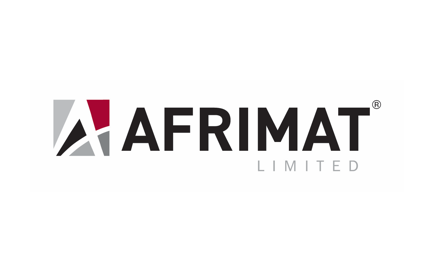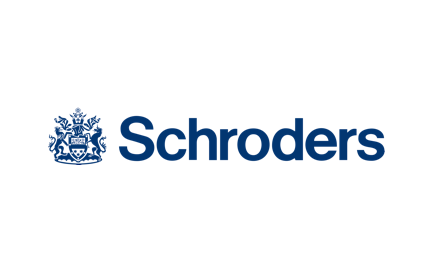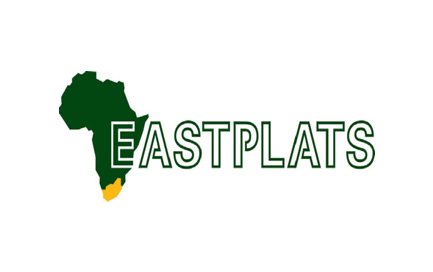Afrimat’s diversification is formally recognised (JSE: AFT)
This is important: Afrimat has moved to the General Mining sector on the JSE
This may sound like a shuffling of the chairs to you, but the sector in which a company is listed can make a significant difference to the shareholder base. For example, a mandate may specifically exclude certain sectors or only include a narrow range of sectors.
Exchange traded funds (ETFs) track an index and that index is usually built based on sector classifications, so being in one sector rather than another can make a significant difference to liquidity and the institutional shareholder base.
For Afrimat, the move from Construction and Materials to General Mining is recognition of the company’s diversification strategy – one that has seen several transactions over the years.
If you’re keen to learn more about Afrimat, the company was recently on the Unlock the Stock platform alongside Capital Appreciation:
The Cashbuild odd-lot offer is finalised (JSE: CSB)
The cash will be in your account on 3 April if this affects you
If you hold fewer than 100 Cashbuild shares, then you need to decide by 31 March whether you want to keep them or not. If you do nothing, you will be deemed to sell your shares.
The good news is that you would be paid out at a 5% premium to the 30-day VWAP. This sets the odd-lot offer price at R197.28 and some change. Monday’s closing price was R184 per share, so you can probably figure out the arbitrage here.
The last day to trade to participate in the offer is 28 March.
Lighthouse Properties releases annual results (JSE: LTE)
The distribution is only 0.9% higher year-on-year and the NAV per share is lower
Despite 92% of its debt being hedged and no loan maturities until November 2024, Lighthouse is taking the step of a scrip distribution to protect the balance sheet. This gives shareholders the option to receive more shares instead of a cash dividend, incentivised through the scrip dividend being larger than the cash dividend.
The loan-to-value has increased from 13.64% to 23.84%, so that might help explain this course of action.
The net asset value has dropped from 46.64 EUR cents to 40.50 EUR cents.
The outlook also doesn’t look fantastic, with a forecast distribution of 2.80 EUR cents in FY23 vs. 3.25 EUR cents in FY22.
Merafe is on a dividend yield of 18.5% (JSE: MRF)
Production cost per tonne makes for frightening reading, though
For the year ended December, Merafe managed to increase its ferrochrome production by 1% and only experienced a 2% decrease in revenue. The trouble lies in production cost per tonne, which skyrocketed 30%.
EBITDA fell by 12% and HEPS decreased from 67 cents to 56.4 cents. On a closing price on Monday of R1.35, this is a trailing Price/Earnings multiple of just 2.4x.
Be careful though: a single commodity miner like this can be treacherous. This is why the multiple is low.
The multiple is actually even lower if you adjust for cash. With a market cap of under R3.4 billion, the cash balance of R1.27 billion is a significant part of the value.
The final dividend has dropped from 22 cents per share to 13 cents per share, which takes the full year total for 2022 to 25 cents per share. This is a trailing dividend of 18.5%.
Merafe is by no means a slam dunk, but has delivered spectacular returns in the wake of the pandemic.
How many more times can appraisal rights be used like this? (JSE: RCL)
At some point, this loophole will surely be closed – RCL Foods is the latest example
Laws are laws. If there’s a way to profit from them, an astute trader will figure that out and do it. The reason we have courts is because when there’s an iffy interpretation or a dispute, parties go and make their arguments and the courts decide on the way forward.
Albie Cilliers (a well known figure on local Twitter) has executed a number of appraisal right transactions that some may call opportunistic, others may call clever and a third group may call downright obnoxious. I guess it depends on who lost out each time.
I won’t get into the legal details here, but suffice to say that a scheme of arrangement triggers an opportunity for a shareholder to exercise appraisal rights provided certain administrative steps are perfectly followed. If a shareholder can afford the legal costs or is familiar enough with the process, a tidy profit can be earned each time if the fair value of the shares is above the price in the scheme of the arrangement.
In the latest example, he used RCL’s unwind of a B-BBEE deal as an opportunity to exercise appraisal rights. Now, the sticky thing is that the law intended this to be a remedy for shareholders who were losing out in the process and disagreed with what was happening. A key point here is that Cilliers and his entity bought the RCL shares after the scheme was announced and he paid R10.20 per share, so there’s zero argument here around “ag shame, he never saw it coming”.
Relying on the fair value guidance from the independent expert, he got paid out R14.69 per share. Based on 150,000 shares, this was a profit of R674k. It’s a nice trick if you can pull it off, especially on the JSE where many companies are trading below fair value.
There has been previous court action in this type of deal, which RCL highlights in a SENS announcement as the company is obviously upset about this. The annoyance stems from the fact that the BEE beneficiaries will receive nothing, but the company represented by Cilliers will receive what is almost an arbitrage profit. I say almost, as this course of action isn’t risk-free because of the potential court process. Of course, it’s also not his fault by any means that the RCL BEE deal was a failure, so the tearjerker argument from RCL doesn’t carry much water.
The company stresses that the conduct is not unlawful. The argument is around the intent of the law, something the courts may look at if these trades carry on.
South Ocean’s profitability went south (JSE: SOH)
This little-followed industrials group has a market cap of R254 million
In the year ended December 2022, South Ocean’s revenue went backwards by 6% and the knock-on effect on profitability is severe, particularly because operating expenses increased substantially year-on-year.
HEPS fell by 40% and the dividend per share is down by 33%.
If you’re wondering how big that dividend is, the company declared 6 cents per share. The closing share price on Monday was R1.25.
A bad day for Transaction Capital (JSE: TCP)
Yes, another one…
Honestly, even the most broken taxis on the road are likely to deliver a smoother ride than Transaction Capital in coming months. The share price dropped 7.4% on Monday. After I played a game of double or quits last Friday, my average in-price is down to R12.23 and it closed at R10.65 on Monday.
Amazingly, even though the management team apparently didn’t have price sensitive information just a few months ago, they have now found the crystal ball at the office and can give guidance out to the year ending 30 September 2023. That’s a remarkable improvement in forecasting ability and not annoying at all.
The knock-on effect of the share price capitulation is that the transaction for the additional 15% stake in WeBuyCars isn’t happening anymore, at least not for now. It would’ve required 30% of the purchase consideration to be settled in shares. The board of Transaction Capital doesn’t want to issue shares at this price and I don’t blame the WeBuyCars sellers for managing their risk and agreeing the delay the transaction.
It should be a temporary issue, as there is a call option that allows Transaction Capital to acquire the stake in two equal tranches in September 2023 and September 2024.
It tells you how bad things have gotten that the board needed to confirm that there are no cross-default clauses between Nutun, WeBuyCars and SA Taxi. There are no holding company guarantees to subsidiaries. If SA Taxi dies, it dies alone it seems.
Another clue to the pain is that the founders of the company have confirmed that although there is a general finance facility against their shares in the company, there are “no circumstances” under which a reduction of the share price will trigger a forced sale of shares based on security pledges.
For the six months to March 2023, HEPS is expected to drop spectacularly by between 370% and 375% to between -199.5 cents and -196.1 cents. A better second half to the year is expected, taking the full year to a loss of between -157.7 cents and -147.2 cents.
Welcome to the jungle.
York Timber: all bark, not much bite (JSE: YRK)
Pricing power is limited and inflation is hurting margins
I’ve never been bullish on York Timber. The share price has lost 19% over 5 years, so it’s definitely not been a long-term winner. Timing is everything though, as it more than doubled in the past 3 years.
It certainly isn’t doubling anytime soon, with a drop in production, limited pricing power and significant diesel costs to mitigate load shedding all on the list of problems. Of course, the biological asset is more valuable, because there was more planting and less harvesting. The biological asset has always been more appealing at York than the actual earnings. Perhaps a highly enthusiastic and wealthy botanist will buy the company one day?
Until then, shareholders need to stomach a drop in HEPS of between 27% and 32% for the six months ended December. Cash generated from operations is expected to be between 30% and 35% lower.
Little Bites:
- Director dealings:
- An executive of Gold Fields (JSE: GFI) took advantage of this run in the gold price to sell R8.5 million worth of shares.
- An associate of a director of Stor-Age (JSE: SSS) has acquired shares worth R495k.
- Schroder European REIT (JSE: SCD) has acquired an industrial warehouse in the Netherlands for around €11 million. I only include such minor updates like these because the net initial yield for the deal is interesting. It gives us a sense of property valuations. In this case, the yield was 5.6% and the tenant has a 20 year triple net lease. The deal isn’t that small for Schroder, as it increases the portfolio industrial weighting from 25% to 29%.
- The Rebosis (JSE: REA) business rescue plan has finally been published. You’ll apparently find it at this link. I say “apparently” because trying to work through the messy list of documents (with no publication dates) is annoying and I gave up, as I (thankfully) have no horse in this race.
- In an unusual move, Ascendis (JSE: ASC) has terminated the services of its auditor (in this case PricewaterhouseCoopers) but cannot yet announce a new auditor. Whilst it is true that a Big 4 audit firm is overkill for how small Ascendis now is, the optics on this could’ve been better.
- Eastern Platinum (JSE: EPS) has almost no liquidity, so I can’t give it much space in Ghost Bites. If you are a shareholder though, you’ll want to read Monday’s announcement about massive accounting restatements that have resulted in far lower revenue than what was previously reported.




















Thanks for expanding on why Afrimat’s change to General Mining is actually quite important.